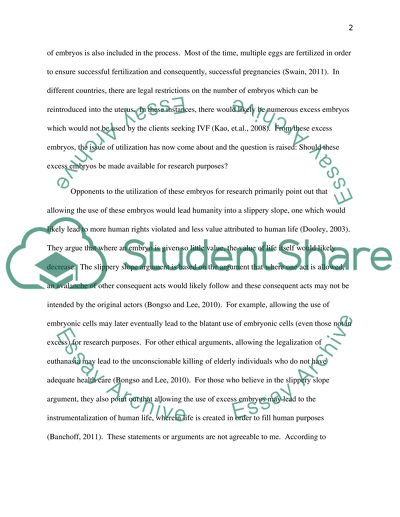Cite this document
(“Excess Embryos and Research Essay Example | Topics and Well Written Essays - 1500 words”, n.d.)
Excess Embryos and Research Essay Example | Topics and Well Written Essays - 1500 words. Retrieved from https://studentshare.org/philosophy/1455387-the-excess-embryos-from-ivf-programs-may-be-used
Excess Embryos and Research Essay Example | Topics and Well Written Essays - 1500 words. Retrieved from https://studentshare.org/philosophy/1455387-the-excess-embryos-from-ivf-programs-may-be-used
(Excess Embryos and Research Essay Example | Topics and Well Written Essays - 1500 Words)
Excess Embryos and Research Essay Example | Topics and Well Written Essays - 1500 Words. https://studentshare.org/philosophy/1455387-the-excess-embryos-from-ivf-programs-may-be-used.
Excess Embryos and Research Essay Example | Topics and Well Written Essays - 1500 Words. https://studentshare.org/philosophy/1455387-the-excess-embryos-from-ivf-programs-may-be-used.
“Excess Embryos and Research Essay Example | Topics and Well Written Essays - 1500 Words”, n.d. https://studentshare.org/philosophy/1455387-the-excess-embryos-from-ivf-programs-may-be-used.


